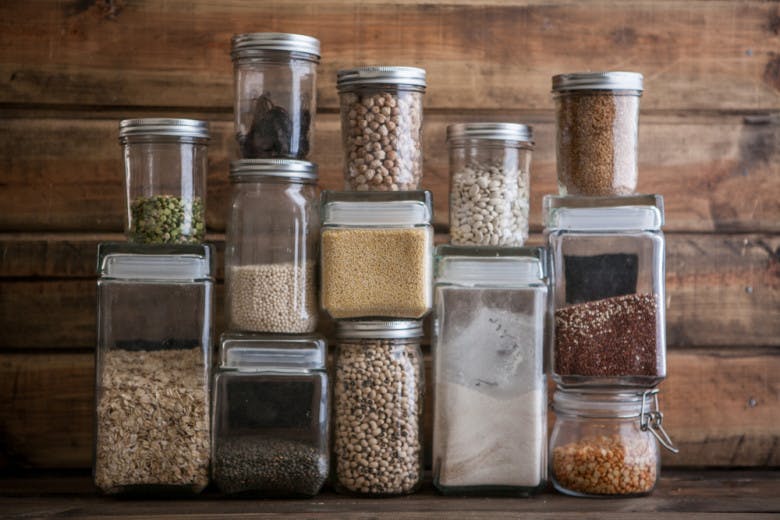
The Shelf Life of Pantry Items
Having a well stocked pantry is essential for pulling together last minute recipe ideas. However, having the same half used pantry items in your cupboard for years isn't a good idea as non-perishables still lose their flavour and can go bad over time. We've rounded up a list of recommended storage times for all of the basic staples found in your pantry.
Spices:
Ground spices: 3 month shelf life.
Whole spices: 8-10 month shelf life.
The flavours of ground spices start to deteriorate immediately so it's best to buy whole spices where you can. The longer they stay in your pantry, the less powerful taste they'll have. While spices are still safe to eat for up to 4 years, it's recommended that spices are replaced every eight to ten months to ensure they're as high quality as possible. Older spices won’t harm you, but potency is drastically reduced the longer you keep them. Indicators of deteriorating spices are fading colour and an unappetising odour. Storing spices in airtight containers protects them from moisture and extends their shelf life.
Dried Beans: 1-2 year shelf life.
The longer beans are kept in the cupboard, the drier they become, making them more difficult to cook. Once the beans start to dry out, it's a lot harder to achieve that tender texture when cooking. Again, storing dried beans in airtight containers extends their shelf life.
Rice:
Whole-grain Rice (brown, red, or black): 6 months shelf life.
Milled rice (white, parboiled or pre-cooked): Indefinitely.
Whole-grain rice deteriorates faster than milled rice because of the oils in its natural bran layer. When stored in an airtight container, whole-grain rice has a shelf life of 6 months but can last longer if kept in the fridge or freezer. If stored properly, milled rice will keep almost indefinitely on the pantry shelf but the texture of grains starts to deteriorate after about three months, becoming harder, and more difficult to cook.
Dried Pasta: 2 years shelf life.
Storing pasta in an airtight container in a cool, dry place is important, as the pasta is affected by extreme temperatures and humidity. You'll know if dried pasta is past its best if the noodles appear blotchy or discoloured or if you find any trace of insects, egg cases, or larvae in the pasta.
Vinegar: Indefinitely.
Vinegar can ferment further when it’s hanging out at pantry temperature, so put it in the fridge. Room temperature kills and changes the flavour profile of the sherry, balsamic, white wine, or whatever other vinegar you’ve been mixing into vinaigrettes. Vinegar won't particularly go "bad" but keeping those bottles at a lower temperature will make sure that the vinegars maintain their best flavour almost indefinitely.
Olive Oil: Unopened- around a year. Opened- 2-3 months.
The average bottle of olive oil will start to lose the young, bright flavours we love in as little as two weeks after it's opened. However, unopened bottles of oil will last for at least a year. Keeping olive oil away from heat, out of the light, and in a tightly sealed container will prevent it from going bad prematurely, There are three threats to olive oil: heat, light, and air. It’s best to keep olive oil in a dark-tinted glass or ceramic container with a pour top or tight-sealing cap.
Information found from multiple sources, primarily: Food 52, The Balance and Body & Soul.
